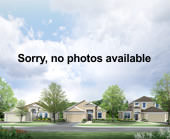Air cooling seems like a rather simple concept. However, there are many hidden pitfalls which can cost you money and even put your home and family in danger. There are also many tricks you can do to save money and ensure your cooling system is running as it should. Here, we'll review some common mistakes made during and after air conditioning installation. We'll let you know what to be on the lookout for, as well as what you should do in order to enjoy comfort and savings at the same time. In addition, we'll review the hottest trends in the HVAC industry and help you find the best air conditioning contractors in your area.
Installation Mistakes
Your cooling system needs to be installed by professionals. Due to the complexity of the system and the fact that it includes many different elements, most areas require by law that any HVAC component be installed by a professional and be inspected after installation.
While all the following mistakes should (and most likely will) be avoided by your air conditioning contractor, it never hurts to be aware. After all, it's your home, and you have every right to insist on safe and proper installation.
- Improper Sizing - Your contractor should use an approved calculation system to determine the correct size of cooling system for your home. This involves measuring all areas to be cooled. An air conditioner which is too large can interfere with moisture control and simply costs more than necessary. A too-small air conditioner will work too hard and still leave uncomfortable levels of heat and humidity, raising your utility bills and shortening the life of the unit.
- Improper Duct Sealing - The area surrounding ducts and vents needs to be sealed to prevent the loss of cooled air. If these areas are improperly sealed, cooled air can escape into the walls, causing your air conditioner to work harder and raising your bills.
- Improper Duct Sizing - If your installation involves the cutting of new ducts or the enlargement of existing ones, be sure that your contractor bases his sizing on the load calculation for your home. Improper sizing can shorten the life of your air conditioner by forcing it to work harder and causing an imbalance.
- Improper Thermostat Positioning - Placing the thermostat near heat vents, air conditioning vents or appliance which gives off heat confuses the unit. A thermostat relies on the air temperature around it in order to determine which adjustments are needed. Giving it “false information†can cause your entire HVAC system to work too hard, and cause your home to become uncomfortably hot or cold.
Usage Mistakes to Avoid
While proper installation is the first step toward an energy efficient cooling system, there are things you should and shouldn't do every day in order to keep your bills as low as possible and extend the life of your air conditioner. Here are some of the most common cooling system mistakes. Thankfully, they're all easily avoidable.
- Ignoring Ceiling Fans - Far too many homeowners assume that since they've just installed a brand new air conditioner, they no longer need their ceiling fans. While it's true that fans don't cool the air, they do cool people! Run the ceiling fan in whichever room you're in (turn them off when the room isn't being used) to maximize cooling effect. Fans should push air down, not pull it upward. This is usually the counter-clockwise setting. This downward rush of air creates a cooling effect, much like a wind chill factor during winter.
- Overuse of Exhaust Fans - Exhaust fans in the bathroom and kitchen definitely have their uses. However, some homeowners leave them running when they're not needed. Once your bathroom is cleared of steam, turn the fan off. The same principle applies to clearing smoke, steam or odors from the kitchen.
- Running Your Air Conditioner All Day Long - A myth exists about leaving the AC running when the house is empty. Some believe that leaving the unit running is easier on it than regularly turning it on and off. In actuality, your air conditioner was made to be turned on and off; using it when and as needed does nothing to shorten its life.
- Confusing Your Thermostat - As we mentioned, a thermostat can be confused by its position, if vents or hot appliances raise the immediate air temperature. If you install a thermostat on your own, be sure to locate it in a spot that accurately reflects the air temperature without being influenced by vents, doors or appliances.
- Trying to Speed Up Cooling - It's natural, upon coming home on a very hot day, to want your house as cool as possible as soon as possible. Don't make the mistake of turning the AC way down in hopes of speeding up cooling. This only makes your system work harder, raising utility bills.
- Concealing the Cooling Unit - Nobody likes the appearance of an air conditioner, and that's why so many homeowners try to hide them with the creative use of shrubs or bushes. While this may enhance the look of your yard a bit, it costs you money as well. If you must conceal your AC unit, make sure that nothing is blocked and that air can circulate freely.
- Ignoring Regular Maintenance - Routine maintenance is the single most important thing you can do to keep your home comfortable and your utility bills low. However, far too many homeowners wait until something goes wrong before checking the unit or, if needed, calling in a professional. Experts recommend cleaning or changing your AC filters every two months. If your unit runs all the time, or if you have pets which shed a lot, every month is recommended.
- Ignoring Air Leaks - Even the best air conditioning system can't possibly cool a house effectively if the house is full of holes. Checking your home for air leaks can go a long way in conserving energy and keeping cool air inside the home where it belongs.
As you can see, there are many simple, yet costly, mistakes to be made when it comes to cooling your home. Thankfully, with the help of a reputable installation contractor and the development of some energy saving habits, you can avoid most or all of these expensive errors.
Industry Trends
The single biggest trend in the HVAC industry right now is the full climate-controlled home. In addition to simply heating and cooling the air, these advanced systems feature integrated moisture control units. They also filter out many common outdoor and indoor pollutants, instead of just dust.
These systems can be programmed to automatically adjust the air inside your home according to pre-set specifications. They can also be manually operated. Futuristic-looking touch pads are the most common way to control the unit; these touch pads are usually placed in central locations on each floor.
Having a fully automated HVAC system benefits your household in several different ways. First and foremost, it cleanses the air in your home, ensuring that nobody in your household is breathing in pollutants, allergens and other unwanted substances. These systems can even filter out a great deal of the chemicals given off by carpeting and furniture.
Energy savings are another big advantage of a full HVAC system. While they can be manually controlled, these systems save you money by automatically cutting back on heating and cooling costs when the house is empty. If your household is typically out the door by seven in the morning, for example, you can program your system to raise the temperature (during the summer). Remember to select a temperature which will keep food safe and pets comfortable.
If you live in a damp climate or your have moisture issues in your basement, a full HVAC system does even more. Moisture is damaging to nearly every material used in the building of homes. Outdoor materials are designed to withstand wetness and dampness, but interior products are not. Installing an HVAC system which will keep your basement (or your whole home) dry doesn't just ensure comfort. It can save you thousands in potential repair bills, as well.
How to Find the Best AC Professionals
Finding any home improvement professionals used to be an intimidating task. You either had to pick a name out of the phone book or ask friends and family for recommendations. While asking for recommendations is still a good idea, the internet gives you a much faster option.
Home improvement websites which connect professionals with consumers allow you to find the best professionals in your area. You can look for pros who specialize in exactly what you need. In addition, you can view things like licensing and insurance, years of experience and even read consumer reviews written by former clients.
Once you've narrowed your list, start making phone calls. Be very clear regarding what you want. A contractor with extensive experience installing central air systems may be wonderful at that particular job, but have little to no experience with the newer, full-service HVAC systems. Ask specific questions to avoid costly delays once work has begun.
Posted by: Diane



